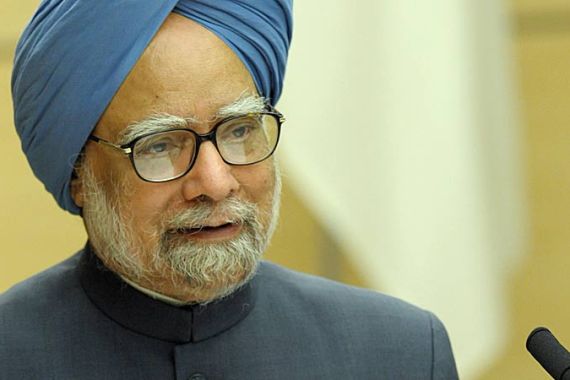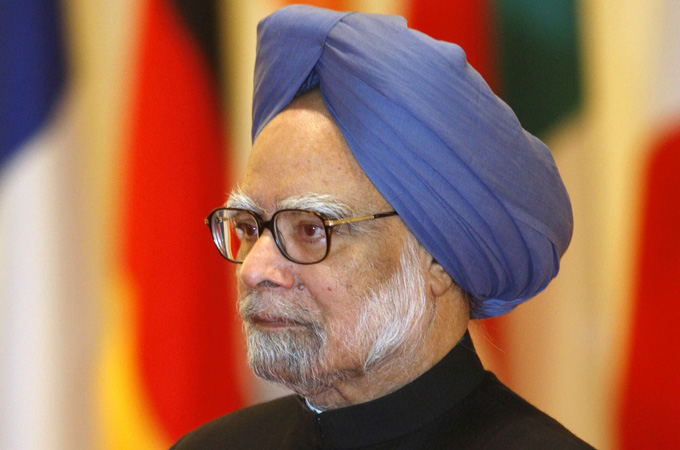Telecom scandal hits India’s PM
Parliament adjourns amid angry scenes as MPs demand investigation into delay into probing of licensing scheme “fraud”.

 |
| Manmohan Singh, India’s prime minister, is under pressure to break his silence on the telecom scandal [Reuters] |
Proceedings have been adjourned in India’s parliament after angry MPs stormed the well of the house over anger at why the government of Manmohan Singh, the prime minister, took a year to investigate a mobile-phone licensing scheme that cost the country billions of dollars.
The scandal centres around Andimuthu Raja, the telecoms minister, who was forced to resign on Sunday amid allegations that his ministry sold second-generation, or 2G, mobile phone licenses at reduced rates to undeserving applicants.
India’s supreme court issued a sharp and rare rebuke of Singh on Thursday, saying the government’s delayed response was an “extremely serious matter”.
The opposition has been blocking parliamentary business all week, calling for an all-party investigation into the scandal.
Damning report
On Tuesday, the state auditor issued a damning report saying the 2008 sales went against the government’s wishes for a transparent bidding process and resulted in significant revenue losses.
A government inquiry reportedly estimated the losses to the treasury were about $39bn.
Raja is a member of the DMK, a regional party from Tamil Nadu, that helps give the ruling Congress party a majority in parliament.
The opposition claims Singh failed to act because he feared upsetting his coalition partner.
The auditor’s report said the sale “lacked transparency and was undertaken in an arbitrary, unfair and inequitable manner” and that many of the 122 licenses were given to “ineligible applicants” who “used fraudulent means” and then quickly sold their stakes at a high premium.
India’s telecom regulator on Thursday recommended that 62 licenses given to five companies be cancelled.
Transparency International this year ranked India 87 out of 178 on its Corruption Perceptions Index – a slide downward from its position a year earlier as the 84th most corrupt country out of 180.
Suresh Kalmadi, the chief organiser of October’s Delhi Commonwealth Games, which was heavily criticised over corruption, was forced to step down from a senior position in the Congress party earlier this month.
Singh pressured
The supreme court has asked Singh’s office to explain why it took a year to address parliamentary demands that Raja be investigated.
The Central Bureau of Investigation, India’s corruption watchdog, has been probing the 2G pricing since October 2009.
Singh has widely been considered one of India’s cleanest politicians since taking charge as prime minister in 2004.
GE Vahanvati, India’s attorney general, must file an affidavit on behalf of Singh by Saturday, according to a court request.
Vahanvati will then defend the prime minister in person at the supreme court on Tuesday.
He is expected to say that Singh, who has not commented on the court criticism and is not expected to attend, followed correct procedures.
The court is expected to inquire why Singh remained silent on a plea by an opposition member of parliament to prosecute Raja.
The judges cannot punish Singh because no case has been filed against him, but any criticism is likely to be a blow to his credibility.